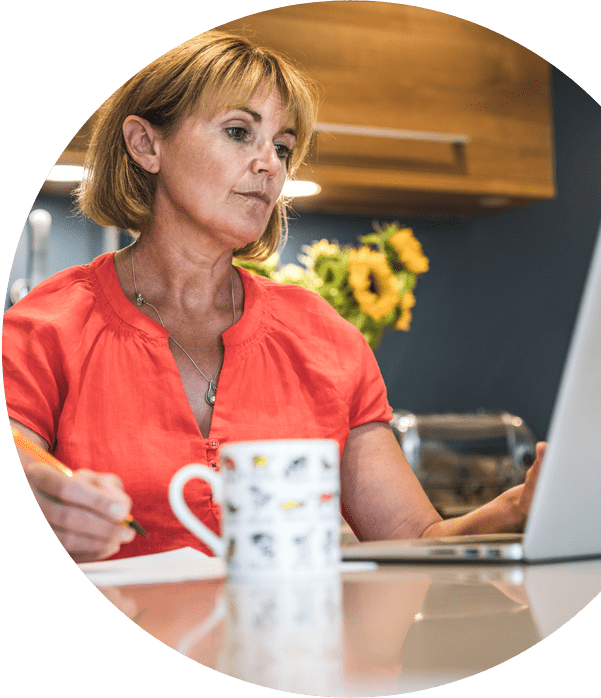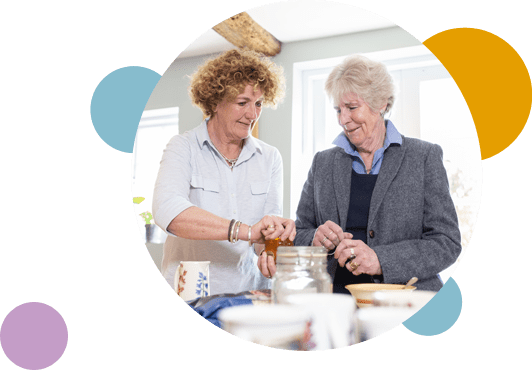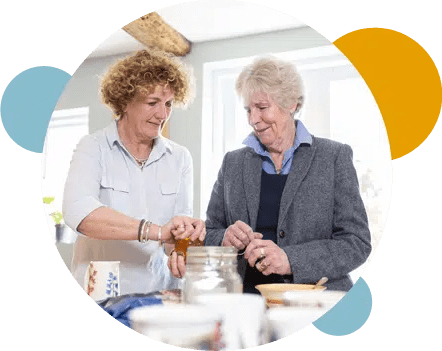Why home is best to maintain independence in old age
We know through our experience of providing high-quality live-in care that receiving care in the comfort, safety and familiarity of your own home has far reaching benefits in maintaining independence in the elderly. For most being able to stay in their own home is essential to their view of their own independence, as opposed to moving into a care home. Unfamiliar surroundings and imposed routines experienced in a care home can affect a person’s view of maintaining independence, causing unnecessary upset and distress to many. We know that staying at home and receiving compassionate, one-to-one care from a highly trained and well-matched professional carer improves independence and quality of life.
When faced with mobility or frailty issues that impact independence, or for those living with conditions like dementia and Parkinson’s or for those recovering from a stroke many believe their only option is to move into a care home, but live-in care is fast becoming the preferred choice for long-term care. In addition to maintaining independence there are many other compelling benefits to receiving 24-hour care at home.
The importance of maintaining independence
Maintaining independence is naturally important to everybody. Older people have spent their lives living independently – making their own decisions, planning life, running a family home, raising families and being in employment.
As we age maintaining independence can become more challenging. Problems with mobility and frailty, isolation and loneliness and financial difficulties can impact a person’s ability to maintain independence in old age.
Whilst some challenges are inevitable as we age, we can still find opportunities for older people to maintain independence as much as possible.
Maintaining independence at home
Our professional carers ensure that people can live well in their own home whilst maintaining independence.
Maintaining choice
We know how important it is for a person to have the ability to make their own choices in life. Not being able to make your own decisions can make you feel less independent, which can lead to negative feelings, like helplessness and sadness which can then lead to depression and anxiety.
We ensure those we care for can make decisions about how they live their life, and these are all captured as part of our comprehensive care planning process. The care plan will cover everything from the care they require, how they wish to socialise, what activities they wish to do but also the way they wish to do every day tasks – what time they want their breakfast and the clothes they want to wear.
Maintaining physical ability
Retaining balance and strength is an important factor in a person being able to maintain independence in old age. It also means that they can stay as active as possible which has widely recognised health benefits that promote independence.
Our professional carers will ensure a person is enabled to be as mobile as possible and that strength is maintained avoiding unnecessary falls and hospital admissions.
Uniquely in live-in care, we have a dedicated Occupational Therapist, Jackie Cooper in our team who provides expert advice and guidance to those who wish to stay living at home with our mobility care service that is focused on maintaining independence. Jackie will conduct a comprehensive assessment of your mobility needs and will provide advice on equipment and home adaptations so you can live well at home, whilst maintain independence.
Maintaining a sense of purpose
Maintaining independence in the elderly ensures they have a sense of purpose in life. Our professional carers will actively encourage you to enjoy activities you have always done whilst facilitating your socialisation with family, friends and neighbours to promote self-esteem, fulfilment and contentment in life.
Equipment that can help with
maintaining independence
If mobility and frailty is impacting your ability to maintain independence at home, there is a range of specialist equipment that can be installed in your home to help enable your independence, including:
- Grab rails in corridors, on stairs, on the bed and on the bath
- A raised toilet seat
- Slip mat for the bath or shower
- Handles that are easy to turn for taps
- A kettle with a holder to make it easy to hold and pour
- Cutlery with special handles to make them easy to hold
- Cups with two handles
- Reclining chairs
- Hooks that help you get dressed – do up zips, undo button
Home adaptations may also help with maintaining independence:
- Fitting a stairlift to the stairs
- Widening doorways to help with mobilisation
- A walk-in shower if getting in and out of the bath is difficult, or if a bath is your preference a bath lift can be installed
- An outdoor ramp may make it easier to come in and out of the house
- Lowering kitchen worktops if you are in a wheelchair can ensure you can continue to prepare food if you wish

Case study: Maintaining independence at home for Brenda and Fred
Our full-time Occupational Therapist Jackie Cooper plays a vital role in helping people with mobility and frailty issues so they can maintain independence. She promotes independence and reablement, especially after time in hospital. Here is how she helped one couple whose situation became critical when one of them fell at home.
“I first met Brenda in hospital. She had broken her femur in a nasty fall at home, where she was living with her husband Fred. Both are also living with dementia. After an operation and two weeks on the ward, the hospital’s Occupational Therapist and Physiotherapist felt her recovery would continue better at home, where she would be inclined to do more for herself.
After that first meeting, the family and I met again at Brenda’s home, where I was able to make an assessment and confirm the adaptations it would need to support her through rehabilitation and ensure she maintained as much independence as possible. I explained the details of our OT led service – 24/7 fully managed care with supporting visits from both myself and the Care Manager – to Brenda’s daughter. We agreed that Brenda would be transferred to our care and my immediate priority became ensuring her smooth discharge from hospital.
Community physio was arranged for her return, along with a standing aid and wheeled commode. Space was made in the dining room for a profiling bed.
I made sure Brenda’s return from hospital went smoothly and she soon began to make great progress at home.
The dining room made a good bedroom, the profiling bed supporting her transfers while also making it easier for the carers to provide personal care. After a few weeks, Brenda’s mobility had improved so much that she was able to move back into the bed she shared with her husband and manage well with just one carer.
Brenda and Fred have now transferred from my care to our nurse-led service. Both their daughter and our Care Manager had noticed a deterioration in their dementia, which required additional support from our Consultant Admiral Nurse.
I still call into visit them at home – a familiar and calming environment which has become especially important to their state of mind and quality of life.”
– Jackie Cooper, The Good Care Group’s in-house Occupational Therapist.
Talk to us about your live-in care needs
Our friendly and experienced team is here to help you and your family make sense of the options available to you. Find out more about how we can help you maintain independence at home – call us today. We will help you every step of the way.

